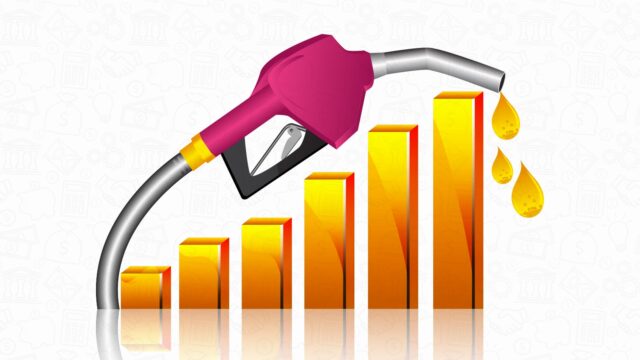How to save on fuel costs
Fuel prices are at an all time high. This, coupled with the already high cost of living is forcing Kenyans to tighten the purse strings. Here are a few ways to save money on fuel and reduce its consumption.

From record-high fuel prices to price hikes in supermarkets and groceries, Kenyans are all around feeling the pain of the skyrocketing cost of living. Following the end of the fuel subsidy that was cushioning consumers, fuel prices have increased by about 15 percent, adding more misery to Kenyans who are already facing economic hardships.
The price of petrol increased by KShs. 20.18 to KShs. 179.13, diesel by KShs. 25 to KShs. 165, and kerosene by KShs. 20 to KShs. 147.94.
To get through the harsh times, there are ways motorists can save money on fuel and reduce fuel consumption.
- Use public transportation
Using public transportation will save you money on fuel, parking, maintenance, and more. Matatus may lack the comfort and convenience of using your car, but at the end of the day, bus fare is cheaper. However, if you are not ready to completely give up driving to work, replace some of your trips with using matatu or bus rides several times a week. Alternatively, you could also catch the train depending on your schedule and where you live.
- Try carpooling
Carpooling is especially practical for neighbours or workmates who regularly travel to and from the same location. Find carpool partners or passengers for an agreed period of travel and take turns driving. Carpooling comes with several advantages: first, you spend less on fuel with the other passengers, second, there’s less wear and tear on your car, and third, on days someone else is driving, you get to sit back, relax and chat or snooze.
- Work from home
Since the onset of the pandemic, telecommuting has become a no-brainer and many employers and employees are recognising the value of working from home.
Working from home also means starting work on time with fewer interruptions, and you don’t have to leave the office early to beat the rush hour traffic.
- Walk or cycle
You don’t have to always drive for distances that you can walk if, for example, you live near the supermarket, church or work. The benefits are multiple: it’s healthier to walk, no emissions, and you don’t have to sit in traffic, after which you’ll have to spend more time looking for parking. You can save money by walking or cycling as you leave the fuel guzzler at home. These alternatives to driving are good for your wallet, the planet, and your health.
- Live closer to your destinations
If you don’t already but are considering moving house, move to an area that is closer to places that you visit often, somewhere with easy access to public transportation, and near your workplace. A shorter commute will save you hours spent in traffic – especially in Nairobi – and money on fuel and car-related expenses.
- Avoid idling
Idling your car-sitting in a stationery car leaving the engine running-is not only wasteful but also damaging to the environment. Idling for long periods of time consumes fuel that can be saved by turning off the engine. When sitting in heavy traffic or at a stop light for long, or pulling off the side of the road to make a call, switch off the engine for the sake of the planet and your fuel consumption.
- Give premium fuel a miss
Unless you drive a flashy vehicle or it is recommended or required by your car’s manufacturer, it turns out there is little to no benefit to choosing super unleaded. You will save a few extra coins every time you fill up when you steer clear of premium pumps.
- Keep your tires inflated to the correct pressure
When tyres are underinflated, fuel consumption increases. Not only will you use more fuel, its also dangerous to drive on underinflated tyres. Remember to check your tyre pressure regularly and change them when they are worn out.
To get the most out of your fuel:
- Service your car regularly.
- Turn off the air conditioner when it’s not needed. Alternatively, roll down the windows.
- Use phone apps such as Google Maps for the shortest, and most efficient routes to avoid driving when there is heavy traffic.
- Practice sensible driving skills – avoid braking hard, and accelerating rapidly, which wastes fuel.
- Reduce any luggage/load in the car. Vehicles get better mileage when they’re not loaded with unnecessary weight. Extra weight can cause you to use more fuel.
- If you’re buying a new car, choose a more efficient model or go for a hybrid vehicle. Hybrid cars use two power sources- fuel and electric motor – and choose the best power option for better fuel efficiency.
